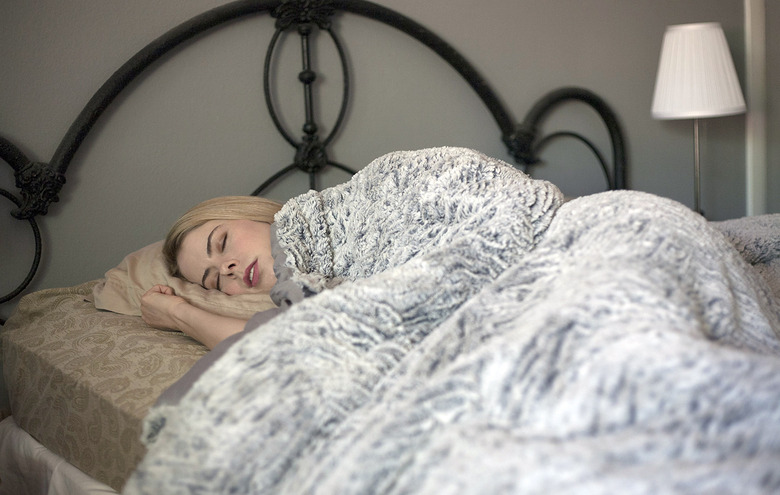Sleeping With The TV On Is Linked To Weight Gain, Study Says
There are plenty of things that we all know can affect our weight. Cramming heaps of calorie-dense processed foods is a big no-no if you're trying to get trim, and ensuring you're getting plenty of exercise will help you keep the pounds off. Simple, right? Well, a new study published in JAMA Internal Medicine draws a very interesting link between a certain common lifestyle habit and overall weight gain, and it's downright bizarre.
The study, which focused on women between the ages of 35 and 74, shows that sleeping with the TV on — or any other source of bright light in the bedroom — and gaining weight tend to go hand-in-hand. In fact, the data from a five-year period shows that those who have a TV or other light source on while they sleep gained over 10 pounds during that timeframe.
Getting enough quality sleep every night is a tip at the top of any healthy living checklist, and lack of sleep has indeed been associated with a variety of conditions including obesity. Lack of deep sleep and not getting enough sleep overall are both correlated with health issues including obesity.
Artificial light has been shown to hamper sleep quality, and that's one of the reasons why blue-light-dimming features have crept into our mobile devices and computers. That being said, a direct link between artificial light in a bedroom and overall weight gain is still a bit startling to see.
"These results suggest that exposure to [artificial light at night] while sleeping may be a risk factor for weight gain and development of overweight or obesity," the researchers conclude. "Further prospective and interventional studies could help elucidate this association and clarify whether lowering exposure to ALAN while sleeping can promote obesity prevention."
Controlling calories and getting as much physical activity as possible should still be the top of everyone's list if you're looking to manage weight, but this researcher shows there are other things to consider as well.
